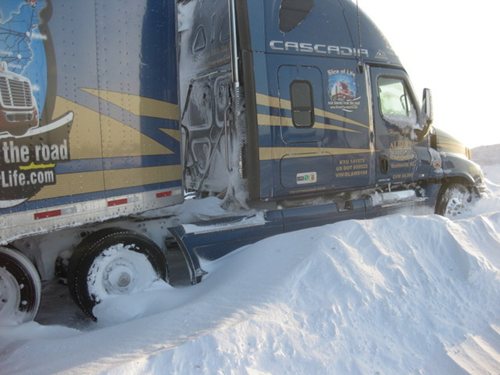
With the winter season upon us, there’s an increased chance for adverse road conditions. The question we all need to ask ourselves when faced with Mother Nature’s wrath on the highway is “When do you call it quits?”
We all face many pressures as drivers to perform in all weather conditions. It’s our job to get the load to the consignee on time and in a safe manner. During times of snow, ice, wind, fog, heavy downpours etc… the two issues of on-time and safe can be in conflict with one another. Bad weather forces us to make a choice whether to continue driving or stop until conditions improve. If you keep rolling, you earn income but risk the chance of losing everything you’ve ever worked for... including your own life or others’ lives. If you decide to stop, most of us won’t receive any compensation while our trucks are sitting. However, you don’t play a part in a potential accident or get caught/stuck on the highway if it becomes un-passable. Again, you can choose a particular location in which to park your truck/trailer until you can move safely to your destination. If you decide to stop and other drivers push on and make the delivery on time, you may look as if you’re unreliable and not dedicated. As you replay each option over and over in your mind, the decision becomes challenging and yet important. With the change from split logs to the 14 hour requirement comes more of a quandary. Time becomes a huge issue regarding when to stop and for how long.
I grew up in Pennsylvania where winter seemed to always bring snow and ice. As a kid and into adulthood, these weather conditions were quite a normal way of life. As a young truck driver, I was determined and somewhat enjoyed the thrill and challenge of making the delivery on time no matter what the conditions. However, as I’ve grown older and witnessed many roadside tragedies, let’s just say, I’ve lowered my threshold for challenges on the highways. As a seasoned and mature driver today, things look very different. I’m not willing to risk other’s lives, my life or equipment for the bragging rights of being the “one truck that made it through the storm.”
How have you changed over the years on your approach to adverse weather conditions?